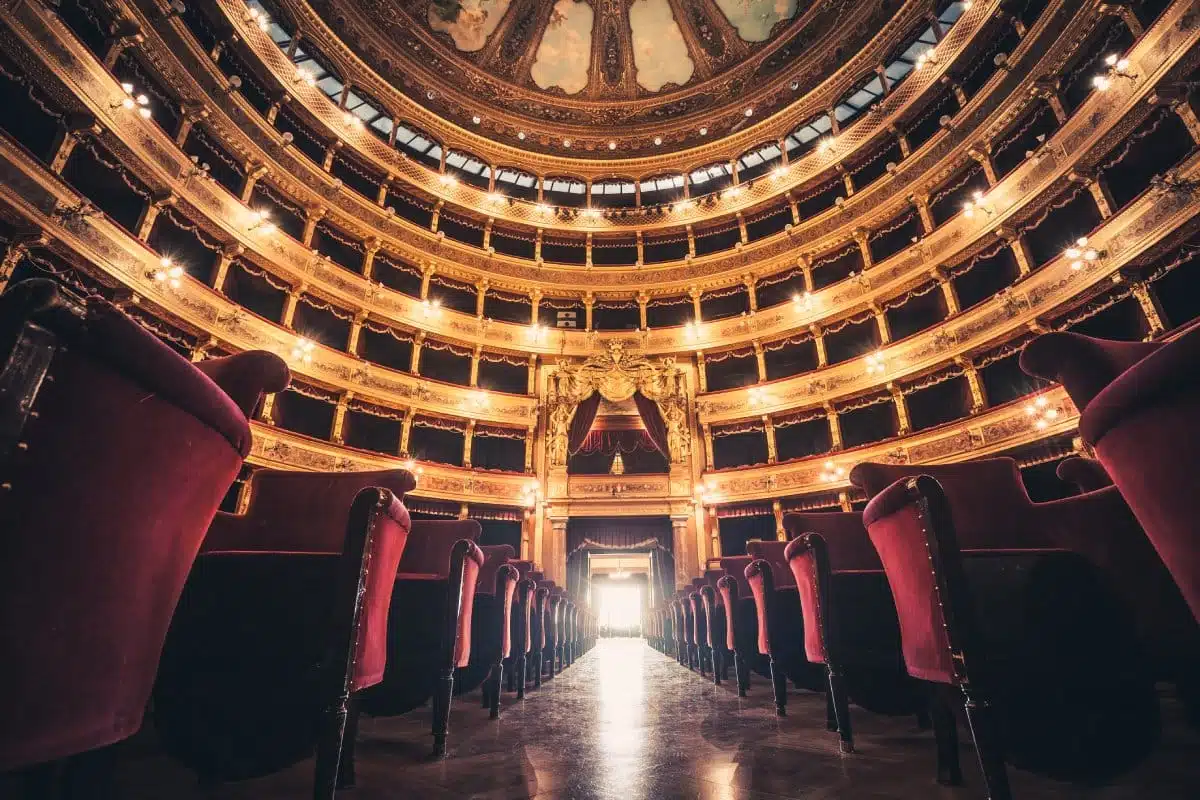From Budapest to Prague, Europe is the home of some of the world’s most incredible opera houses, with beautiful shows to see and mind-blowing architecture to match. This article will help you decide which theater is the best for your European adventure!
1. Teatro alla Scala, Italy
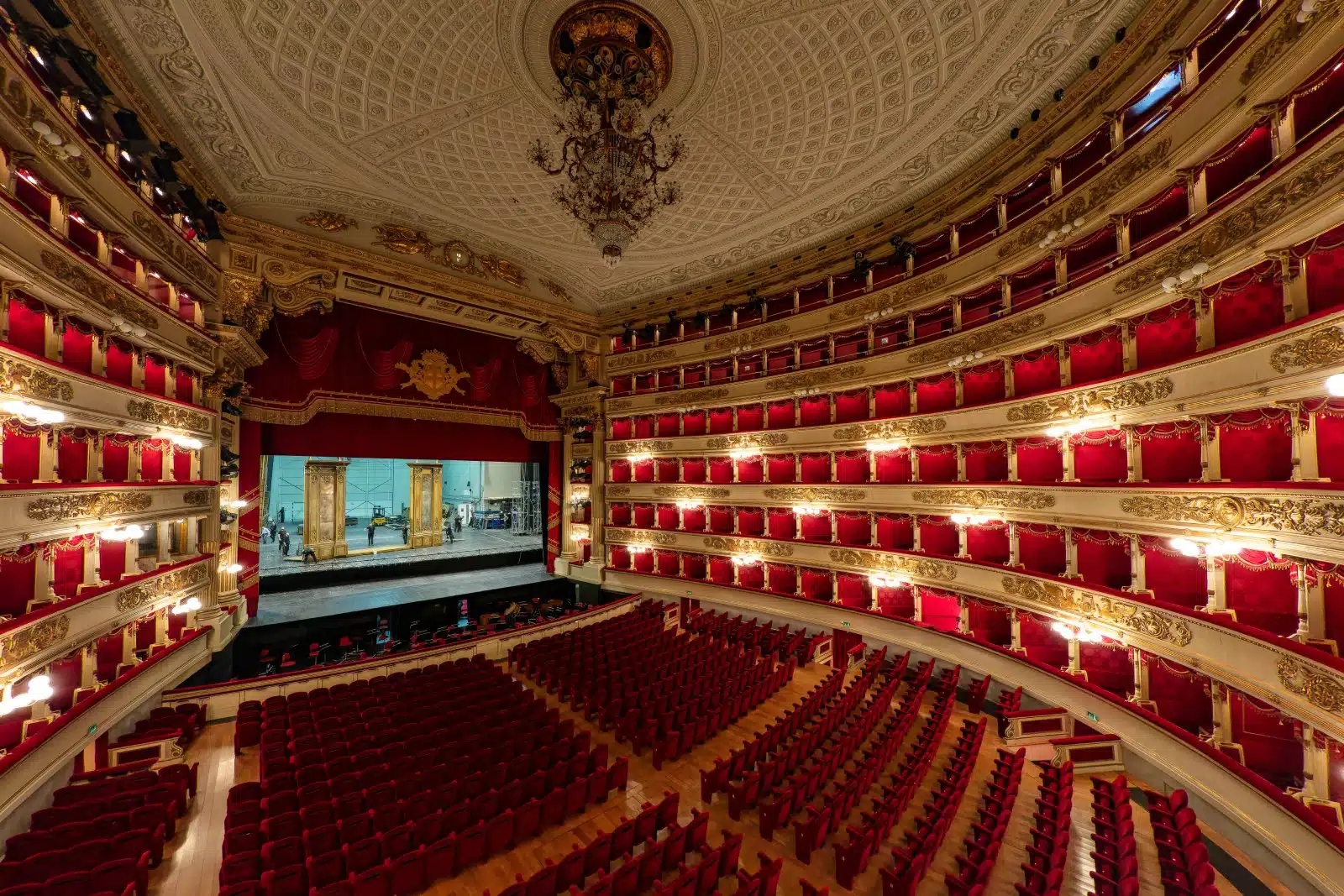
Image Credit: Shutterstock / posztos
Italy, the birthplace of opera, is home to the renowned Teatro alla Scala in Milan. Known for its history with classical music, it has been the stage for some of the most famous operas. Italy is also the birthplace of the classical music maestro Vivaldi and opera legend Pavarotti, with the theater’s high-quality productions making it a must-visit.
Tickets can range in price, depending on the show and seating.
2. Royal Opera House, United Kingdom
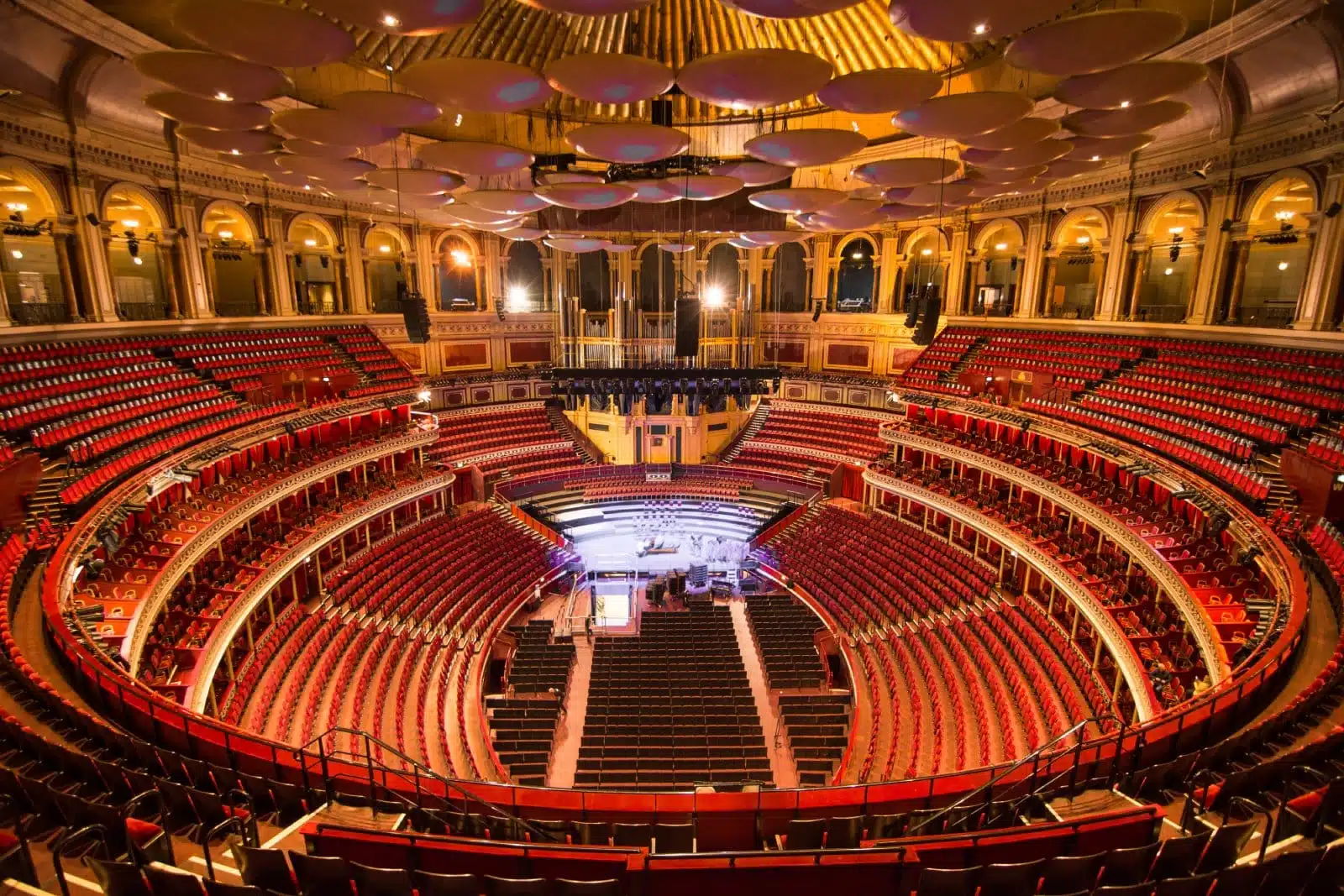
Image Credit: Shutterstock / William Barton
Moving to the United Kingdom, the Royal Opera House in London has been vital for the country’s love of classical music. Constructed in 1738, it has a long and tragic history as it burnt down in 1808, before making a comeback by becoming one of the world’s most renowned theaters for pantomime, ballet, and opera. Ticket prices vary, but affordable options are available.
3. Palais Garnier, France
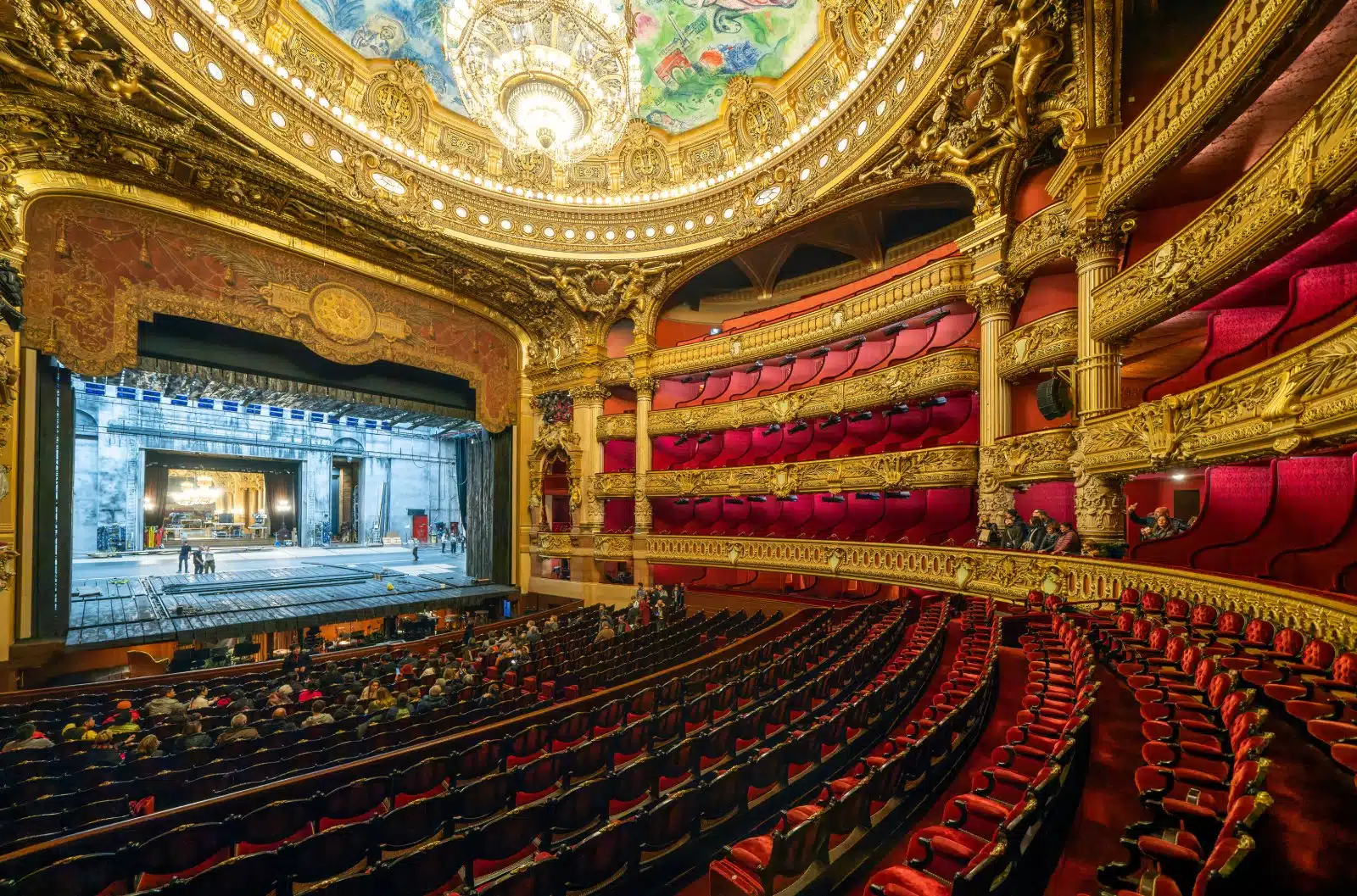
Image Credit: Shutterstock / posztos
In France, the Palais Garnier in Paris shows off France’s cultural heritage along with its eye for detail. Known for its majestic architecture, you’ll walk in to see stunning golden pillars and historic artwork on the ceiling. A must-visit for all lovers of the classical arts, you can also have a self-guided tour of the venue before your show.
4. Vienna State Opera, Austria
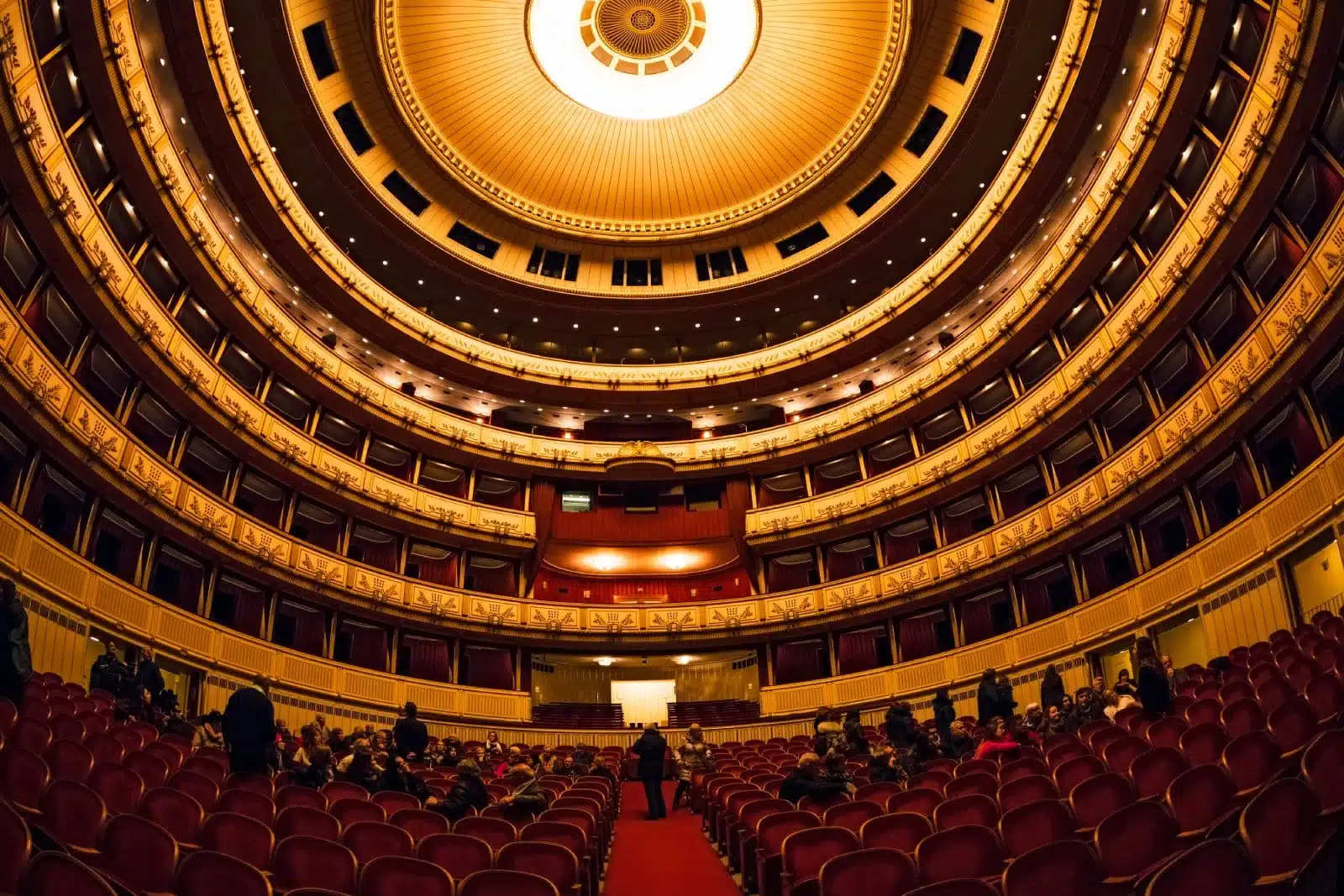
Image Credit: Shutterstock / posztos
Austria is famous for producing legendary classical composers like Mozart. The Vienna State Opera always has the world’s most famous artists on display, including opera, ballet, orchestras, and choirs. With tickets starting from €20, it’s enjoyable for all tourists and easily accessible too!
5. Hungarian State Opera House, Hungary
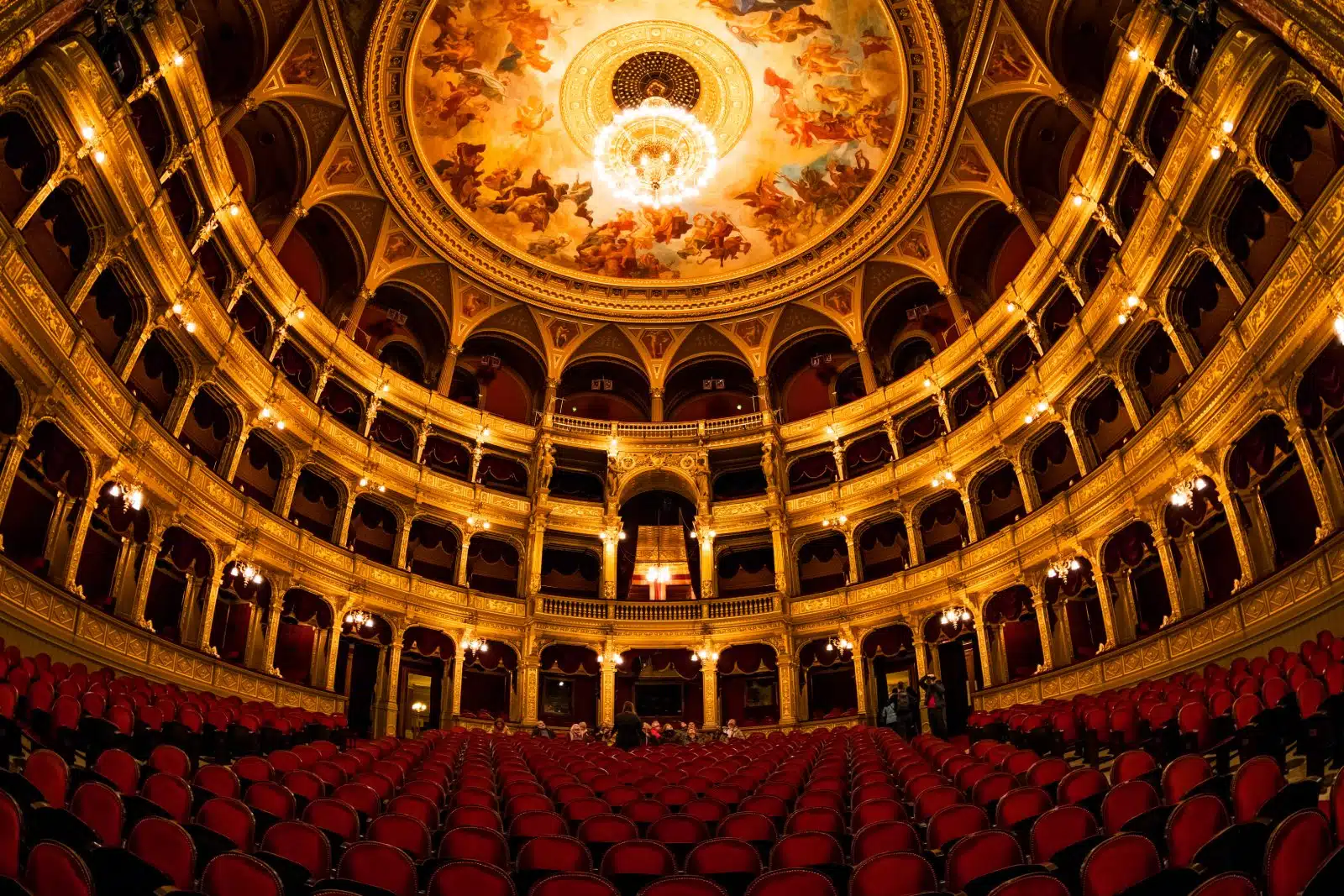
Image Credit: Shutterstock / posztos
Hungary may not be the first thing you think of when it comes to opera, but Budapest’s Hungarian State Opera House is a sight to behold. Also, Budapest’s architecture is some of the best in Europe. You’re guaranteed to be amazed as you walk down the historic streets, but we recommend taking a trip down the river in a boat for the best views. Tickets can range from €10 to €100, depending on the show and seating.
6. Gran Teatre del Liceu, Spain
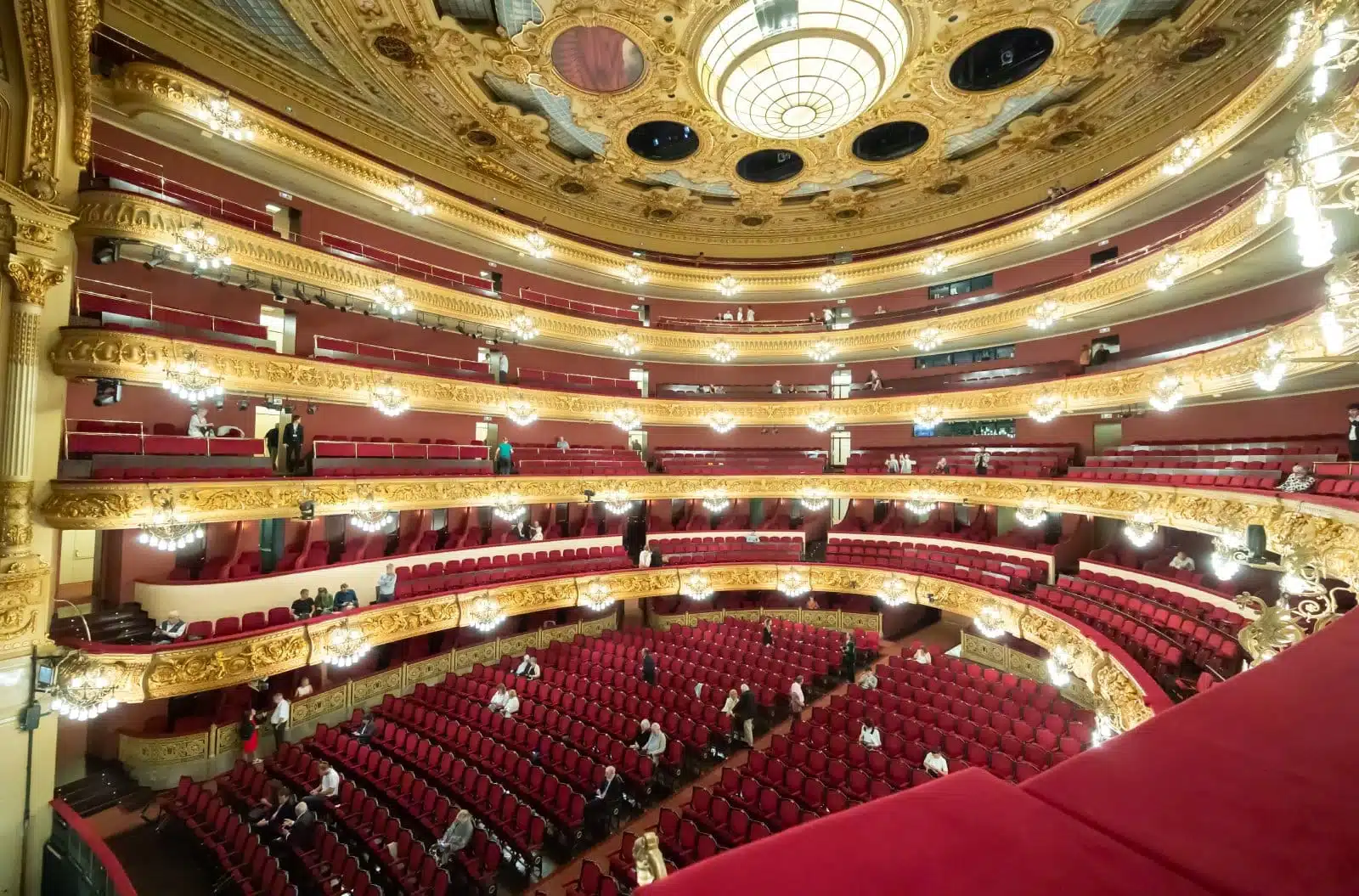
Image Credit: Shutterstock / BearFotos
In Spain, the Gran Teatre del Liceu in Barcelona is one of the country’s most prestigious opera houses. The Gran Teatre has a large capacity of 4000 seats, and it was the largest opera house in Europe at its opening in 1847. Ticket prices range from €10 for the cheapest seats, or €300 for the best in the house. You can also take a tour for just €9.
7. Semperoper, Germany
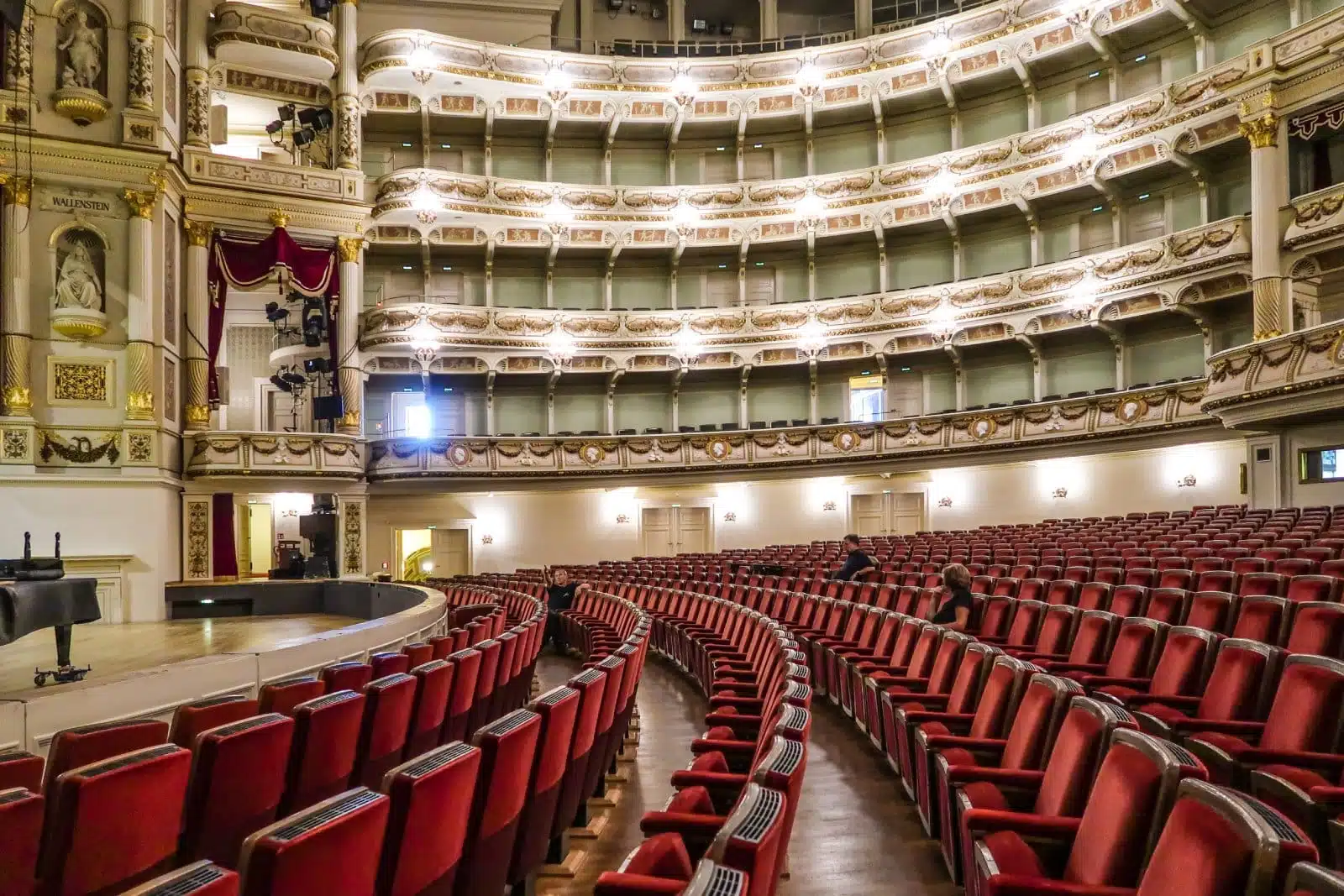
Image Credit: Shutterstock / picture.factory
Germany, the birthplace of many great composers like Bach and Beethoven, is also the home to the Semperoper in Dresden. It always has high-quality performances and is famous for its stunning architecture, it’s a must-visit! Tickets start from €20.
8. La Monnaie, Belgium
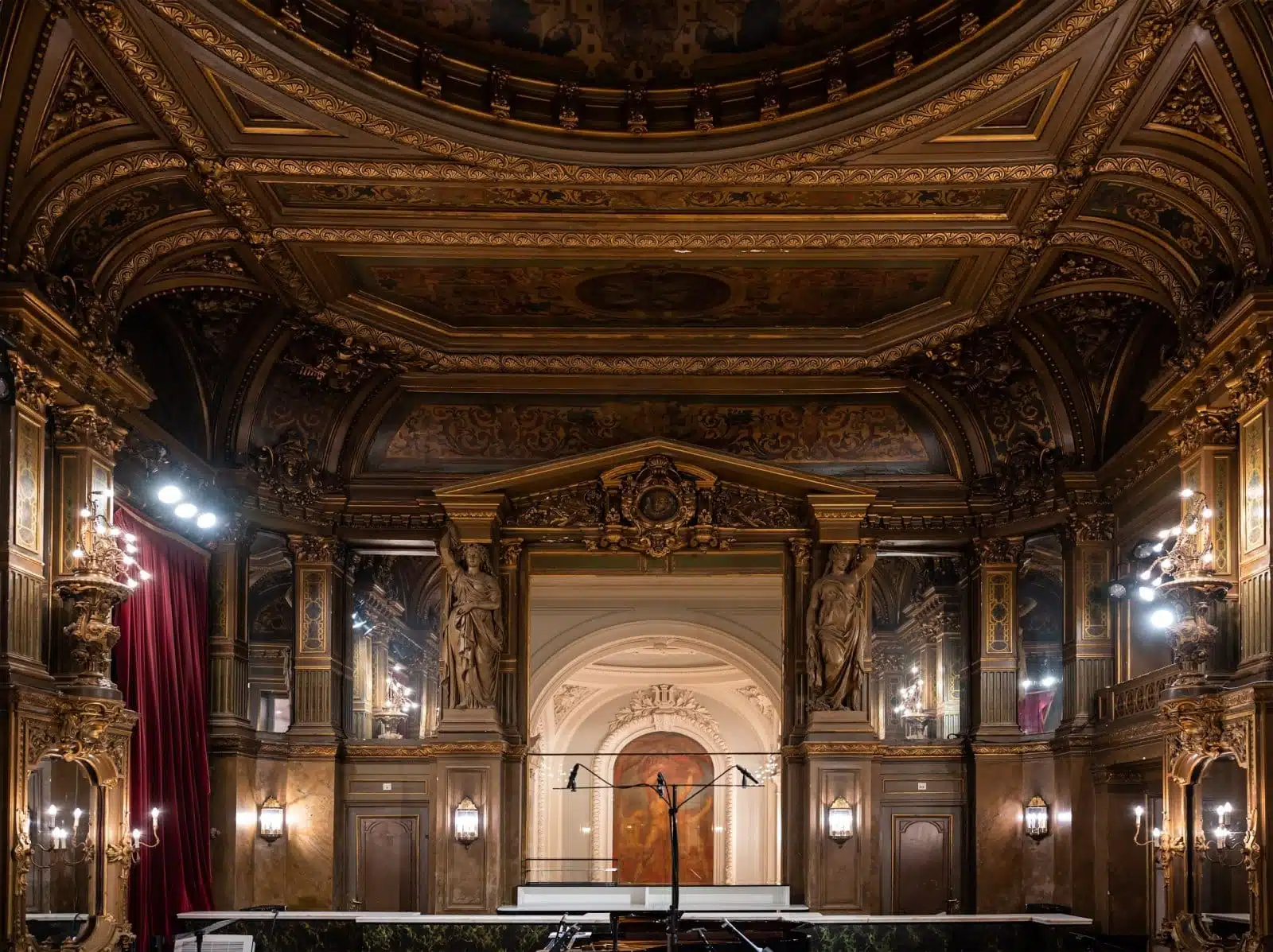
Image Credit: Shutterstock / Werner Lerooy
Belgium’s La Monnaie in Brussels is one of Europe’s most prominent opera houses. Belgium’s classical music history featured famous composers like César Franck, and Brussels has many exciting things to explore.
Tickets range from €15 to €200.
9. National Theatre, Czech Republic
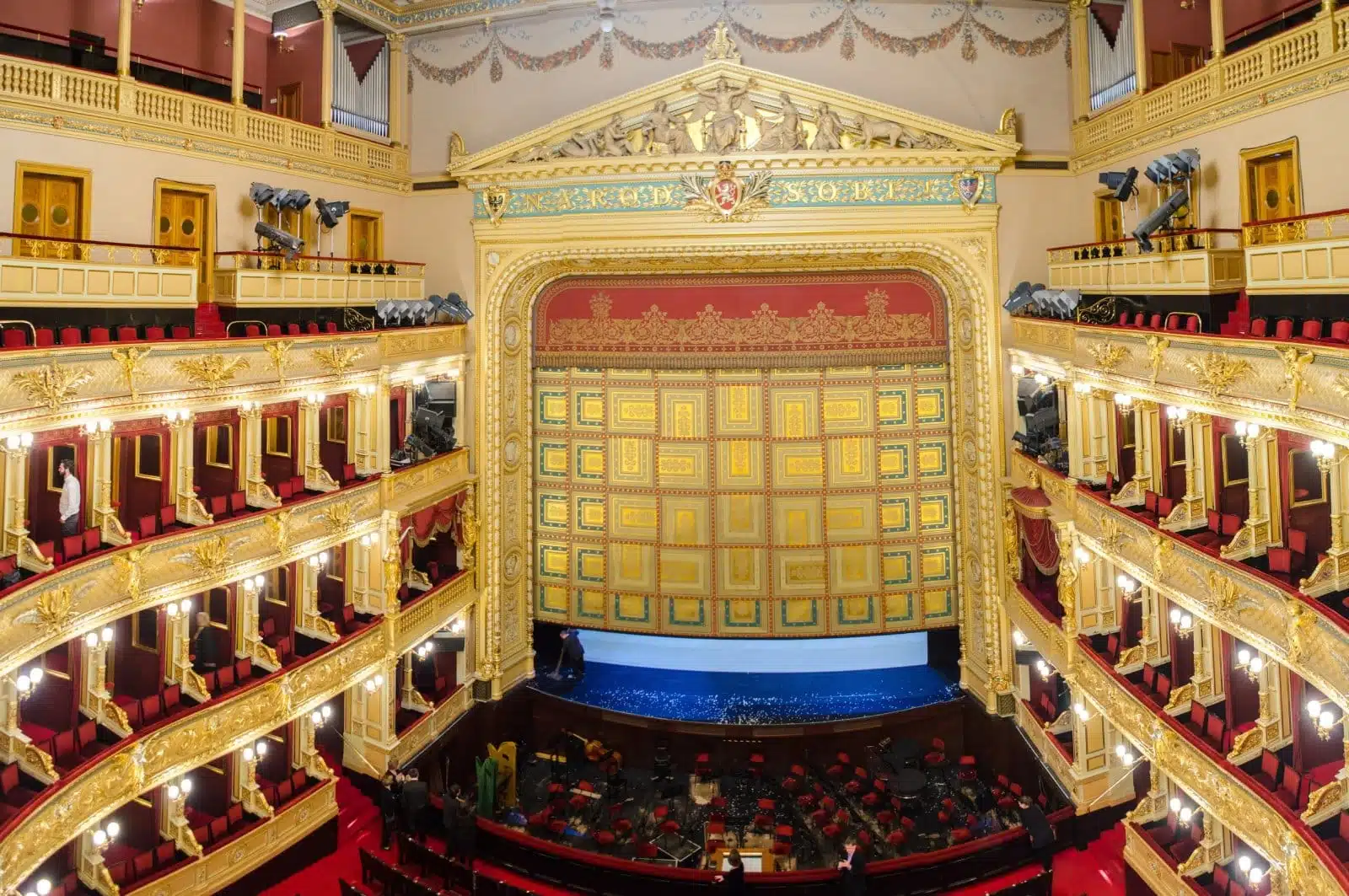
Image Credit: Shutterstock / trabantos
Lastly, the Narodni Divadlo in Prague, Czech Republic, has a fascinating history as it survived fires, war, and communism. The country itself loves classical music, producing composers like Dvořák and Smetana. The theater is situated on the picturesque Vltava river, with stunning views of Prague Castle.
The Bottom Line
Each of these opera houses is great for experiencing the cultural heritage of the cities in which they’re located. Whether you’re an opera enthusiast or a curious traveler, these venues should be placed straight on your bucket list!
More From The Green Voyage
Top 10 Trending Travel Destinations 2024
6 Essential Banking Apps for International Travel – Managing Your Finances on the Go
Traveling With Kids – 10 Tips to Create Memorable Family Holidays
The post 9 Operas for the Cultural Critic first appeared on The Green Voyage.
Featured Image Credit: Shutterstock / Angelo Cordeschi.
For transparency, this content was partly developed with AI assistance and carefully curated by an experienced editor to be informative and ensure accuracy.
Tips for Trip Success
Book Your Flight
Find an inexpensive flight by using Kayak, a favorite of ours because it regularly returns less expensive flight options from a variety of airlines.
Book Your Hotel or Special Accommodation
We are big fans of Booking.com. We like their review system and photos. If we want to see more reviews and additional booking options, we go to Expedia.
You Need Travel Insurance!
Good travel insurance means having total peace of mind. Travel insurance protects you when your medical insurance often will not and better than what you get from your credit card. It will provide comprehensive coverage should you need medical treatment or return to the United States, compensation for trip interruption, baggage loss, and other situations.Find the Perfect Insurance Plan for Your Trip
